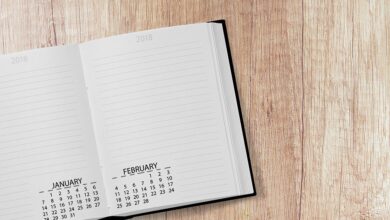
Simplify Your Days: How a Calendar Can Reduce Stress
In today’s fast-paced and demanding world, stress has become an unavoidable part of our lives. From juggling multiple responsibilities to meeting various deadlines, it often feels like there aren’t enough hours in a day. However, what if there was a simple tool that could help reduce stress and bring order to our chaotic lives? Enter the calendar – a powerful and effective tool that can help us simplify our days and alleviate stress. In this article, we will explore the numerous benefits of using a calendar and how it can assist us in managing our time efficiently.
One of the primary advantages of a calendar is its ability to provide a visual representation of our commitments, tasks, and appointments. By jotting down important dates and events, we grant ourselves clarity and ensure that nothing slips through the cracks. This visual representation not only helps us plan ahead but also allows us to manage our time effectively, allowing for a more balanced and less stressful lifestyle.
Moreover, using a calendar enables us to prioritize our tasks and allocate time for each one. It eliminates the need to rely solely on memory, reducing the chances of forgetting important tasks or appointments. By scheduling our activities, we can ensure that we allow sufficient time for all our commitments, preventing us from feeling overwhelmed and minimizing stress levels.
A calendar can also assist in breaking down large and daunting tasks into smaller, more manageable parts. By dividing a seemingly insurmountable project into smaller deadlines, we create a sense of progress and accomplishment. This not only makes challenging endeavors less intimidating but also boosts motivation and confidence. The calendar becomes a trusted companion, guiding us towards completing our goals, one step at a time.
Furthermore, maintaining a calendar can help us identify patterns and trends in our schedules. By tracking our activities over time, we can map out our recurring commitments and obligations. This allows us to detect any potential conflicts or overlaps, giving us the opportunity to make adjustments and mitigate stressful situations before they arise. It enables us to take better control of our time and make informed decisions about how to allocate it effectively.
A calendar can also be utilized as a tool to help us establish healthy boundaries and prevent overcommitment. By visualizing our schedule, we can gain a realistic understanding of how much time and energy we have available. This awareness helps us prioritize self-care, ensuring that we don’t stretch ourselves too thin. By clearly setting boundaries, we reduce stress levels and improve our overall well-being.
Moreover, a calendar facilitates effective time management by providing us with a structured routine. By scheduling our daily activities, we eliminate the need to make constant decisions about what to do next. This reduces decision fatigue and frees up mental space for more important tasks. It also helps us develop habits and routines, allowing our brains to function on autopilot. The structured routine provided by a calendar helps us maintain focus, enhance productivity, and reduce stress caused by a lack of direction.
In addition to its role in managing our personal lives, a calendar can also be a useful tool for collaboration and managing work-related commitments. In a professional setting, it helps teams synchronize their schedules, ensuring everyone is on the same page. By allocating time slots for meetings, deadlines, and project milestones, a calendar increases efficiency and reduces the risk of miscommunication or missed deadlines. This collaborative approach promotes effective teamwork and reduces stress caused by disorganization or conflicting schedules.
However, it is important to note that the effectiveness of a calendar depends on its proper utilization. While a calendar is an invaluable tool for organizing our lives, it is essential to remember that it is not a magic solution that can eliminate all stress. Maintaining a calendar requires discipline, consistency, and regular updates. It is necessary to review and adjust our schedules as circumstances change, remaining flexible and adaptable.
In conclusion, a calendar can be a powerful tool in reducing stress and simplifying our days. By providing a visual representation of our commitments, helping us prioritize tasks, and enabling effective time management, it allows us to take control of our lives. A calendar aids in breaking down overwhelming tasks, identifying patterns, and facilitating healthy boundaries. It assists in establishing routines and enhancing productivity while promoting collaboration and teamwork in a professional context. However, it is crucial to remember that a calendar is only effective when used properly and requires ongoing maintenance. By incorporating a calendar into our daily lives, we can bring order, balance, and serenity to our hectic schedules, ultimately reducing stress and improving our overall well-being.





